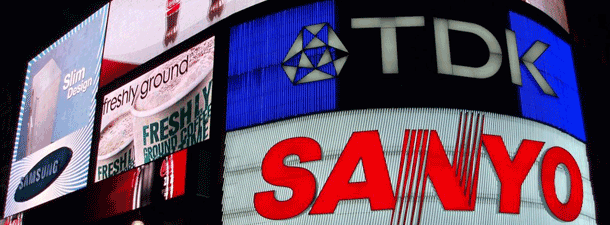Land Securities are the largest commercial property company in the UK, owning and managing over 29 million sq ft of space.
Their property portfolio includes not just city centre shop and office developments but large retail parks and out of town shopping centres.
In addition to income from letting commercial floor space Land Securities also have a substantial income from advertising hoardings mounted on the side of buildings or alongside the roads on their developments.
London’s Piccadilly lights is one of the most famous landmarks owned by the company and recently Hyundai signed an agreement which will reportedly pay £2m a year in rent to take over the illuminated advertising banner used for the last 30 years, by Sanyo.
Advertising on prominent properties is not a new idea and the fact that this agreement is the first time a new brand has advertised on the site since 1994, when Samsung replaced Panasonic shows that this type of income can sometimes last longer than some traditional property leases.
Craig Powell, Associate Director, Holloway Iliffe & Mitchell commented:
‘At a time when it is becoming increasingly difficult to obtain rent increases at review, smaller commercial property investors are now considering alternative income streams other than just occupational rent.’
Outdoor advertising revenues increased almost 20% in 2010 compared to 2009 and as with mobile telephone mast sites; the number of shared sites has grown dramatically over the last five years due to digital screens.
Landlords with the foresight to identify potential locations suitable for advertising hoarding need to take advice when letting their buildings or land to ensure that their tenant’s rights do not conflict with the consents an advertising agency will require erecting and maintaining their advertising banners or displays.
A Chartered Commercial Property Surveyor can provide advice about both the benefits and drawbacks of advertising hoardings and other additional revenue that office, retail and industrial properties may generate from mobile phone masts, surplus car parking, open storage or short term all-inclusive lettings.




















